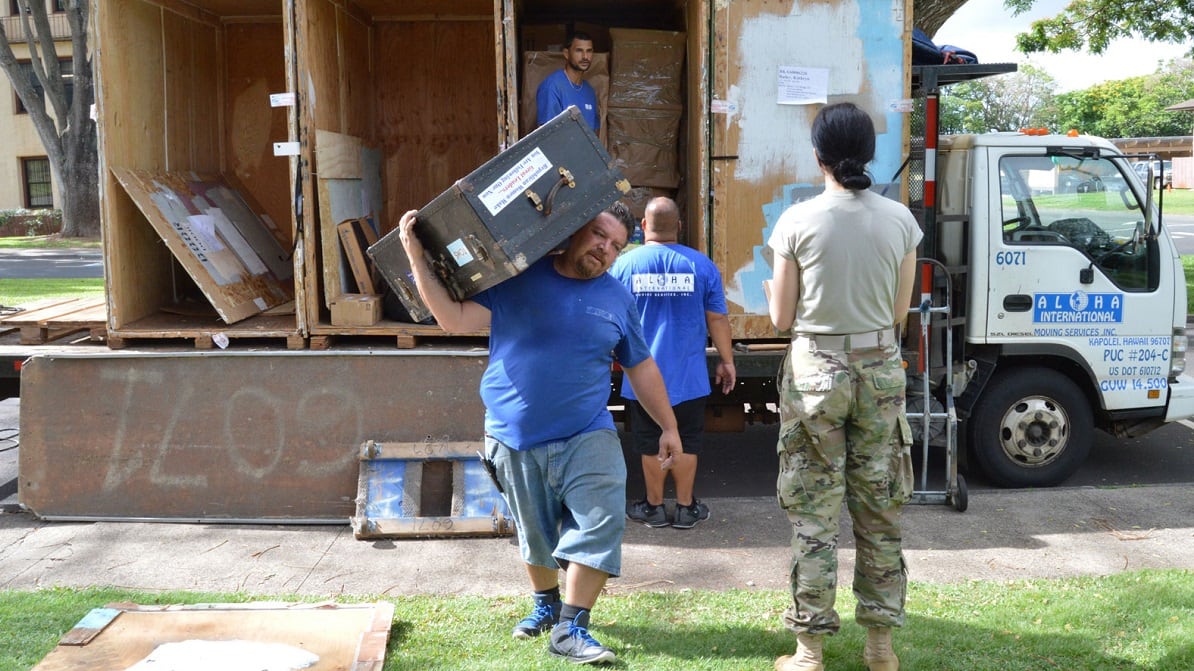Lt. Col. Kris Saling signed and submitted her retirement packet in 2020 — not because she didn’t like her job with the Army’s Talent Management Task Force, but because her family couldn’t handle living in Washington, D.C., any longer.
“During COVID...our daycare shut down and my husband quit his job to take care of our son — and we were starting to get dissatisfied with D.C. life as it was,” she explained in a phone interview with Army Times. “So I went ahead and submitted my retirement paperwork.”
Two years later, thanks to the intervention of her then-boss, Maj. Gen. Joseph McGee, Saling is still in the Army and selected for promotion to colonel.
How? McGee allowed Saling, who worked in research and analysis for the Talent Management Task Force, to move to Orlando and come to the office at the Pentagon only when needed. Saling became the first member of a permanent hybrid work pilot program that grew to include “a handful of other people,” she said.
Two years later, the service is expanding its hybrid work pilot for certain career fields, with Saling building a new “innovation cell” for Human Resources Command boss Maj. Gen. Thomas Drew from her Orlando home. She calls it a “distributed organization” pilot.
The innovation cell is working on the Army’s effort to update legacy systems, like the new online personnel and pay portal. They’re also serving as a test case to see how well remote work fits into the Army’s office environment.
HRC is selecting a limited number of troops to join the cell — and allowing them to remain at their current duty station and execute a “digital PCS” to HRC with full virtual onboarding.
Saling explained that the move will help HRC “get the talent needed to jumpstart [Drew’s] vision for HRC 2030.”
The team, which currently includes four other officers who virtually “moved” to HRC with Saling, will likely expand to around 15 to 25 people, she said. About a third of them will be physically located at Fort Knox, Kentucky, and the remaining two-thirds will stay where they currently are, Saling expects.
Saling says the innovation cell, when fully staffed, will include data scientists, artificial intelligence professionals, coders and other digital talent. The expectation is that the team will be able to do their jobs just as well as — if not better than — they would in a traditional in-person office setting.
Could more Army units see permanent hybrid work?
Creating and scaling similar options could help the Army mitigate quality of life issues, such as spousal employment prospects and proximity to family, that often lead soldiers to end their careers early, Saling argued. The service could also save money on moving expenses and on lost training expenses for talent that decides to leave the Army rather than move to a new duty station.
Saling thinks that “most staff work” can be done in a distributed office format, though she does worry about creating “haves and have nots.” While some Army jobs can go remote, others, like infantry or aviation, are unlikely to see that benefit allotted to them.
HRC is pulling out the stops to see if Saling’s experiment will succeed, though. The command is engaging with distributed work experts, tech professionals and even social psychologists to develop best practices for the innovation cell.
Saling also noted that running a distributed office has its challenges, which include coordinating with local units for basic administrative requirements like PT tests and medical exams. It may also be difficult to build connections between soldiers who don’t interact daily in an office environment. And then there’s the trouble that comes with determining how often people need to go to Fort Knox for meetings and exercises.
“We’re trying a lot of things; we’re reaching out to experts and talking to the team and figuring out what works,” Saling said.
Ultimately, the team’s success — and the future of hybrid work in the Army — will come down to the same factors as any other unit.
“Success for us is the two things that are success for the Army anyways: accomplishing the mission and building a great team,” said Saling, pausing for a moment before adding, “and showing that we don’t need to be physically present to do it.”
Davis Winkie covers the Army for Military Times. He studied history at Vanderbilt and UNC-Chapel Hill, and served five years in the Army Guard. His investigations earned the Society of Professional Journalists' 2023 Sunshine Award and consecutive Military Reporters and Editors honors, among others. Davis was also a 2022 Livingston Awards finalist.









